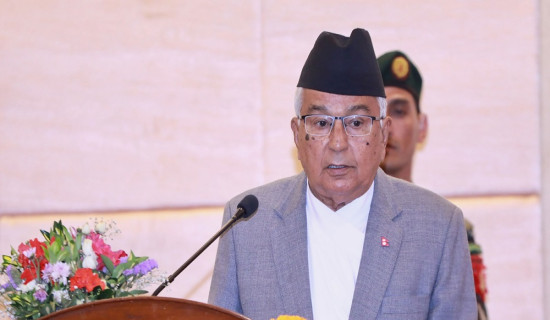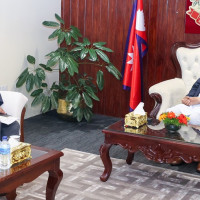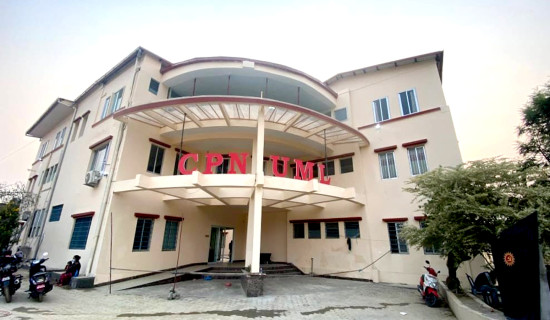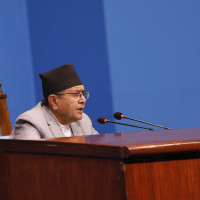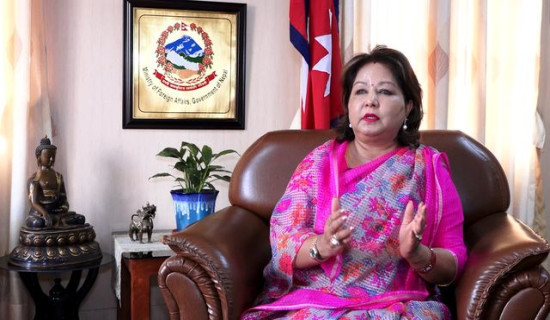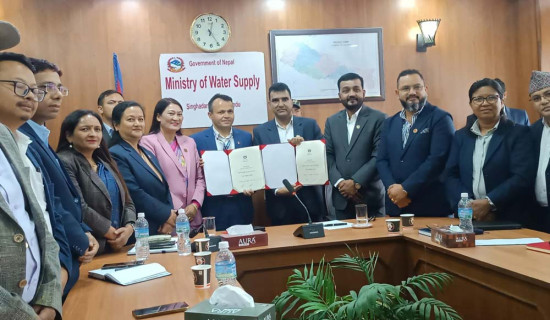- Saturday, 10 May 2025
Legislative Responsibility
Parliament is the highest seat of elected representatives primarily tasked with formulating laws and listening to the burning concerns of the public. It does not only discuss the problems people face daily but also issues rulings in the name of government to address them. Parliament has the responsibility to institutionalise democratic principles, values and norms by giving space to the opposition parties. Based on the principle of separation of powers, it serves as a curb on the authoritarian impulses of the government. It has a vital role in balancing the executive and judiciary. In addition to forming and toppling the government, it guides the nation in times of trouble. The elected wing brings together all forces when there is a threat to national sovereignty and territorial integrity.
Nepal’s federal parliament is putting its best foot forward to discharge its duties as per the constitution. However, it has yet to accomplish its important tasks - framing the crucial laws essential to functionalise the federal system. In the absence of necessary laws, the three tiers of government are not running institutionally, causing hindrances to the effective delivery of goods and services to the citizens. The winter session of the federal parliament came to an end last week. Its proceedings lasted for 61 days. As it was the first winter session following the formation of a joint government of the Nepali Congress and CPN-UML, there was high expectation that it would be able to approve important pending bills but that hopes were not met as the legislature endorsed only nine bills, of which five were ordinances.
The government and opposition parties are crossing swords over the lackluster performance of the House. The process of approving the Federal Civil Service Bill, Nepal Police Bill and the School Education Bill hit roadblocks as the parties differed on their contents. The ruling parties have accused the opposition of causing obstacles to the enactment of laws. However, lawmakers have deep disagreements on the content of the bills related to civil service and school education. The government ran the gauntlet from the opposition when it presented six ordinances in the parliament. However, the government has a constitutional right to bring ordinances when they are deemed necessary.
The ordinances that became Acts following their approval aim at boosting governance, carrying out economic reforms and creating an atmosphere congenial to foreign direct investment. The passage of the ‘Corruption Prevention (First Amendment) Bill, 2081’ after it got stuck in the parliament for five years is expected to reduce the cases of corruption that have held back and hurt the country's progress and prosperity. According to a news report of this daily, the government was set to pass 25 bills in this winter session but could not do so owing to the unfavourable atmosphere in the House. It has given priority to approve the three important bills related to civil service, police and school education in the upcoming budget session.
The parliament's primary job is to frame laws that the executive enforces and judiciary interprets for their further refinement. The more important thing is that lawmakers should fully understand their legislative responsibilities. They should rise above partisan interests and focus on producing the laws that are indispensable to ensure law and order, good governance and economic growth. Failure to pass the important bills only gives rise to systemic problems, given that it has not been more than a decade since the adoption of federal, republican and secular constitution.



